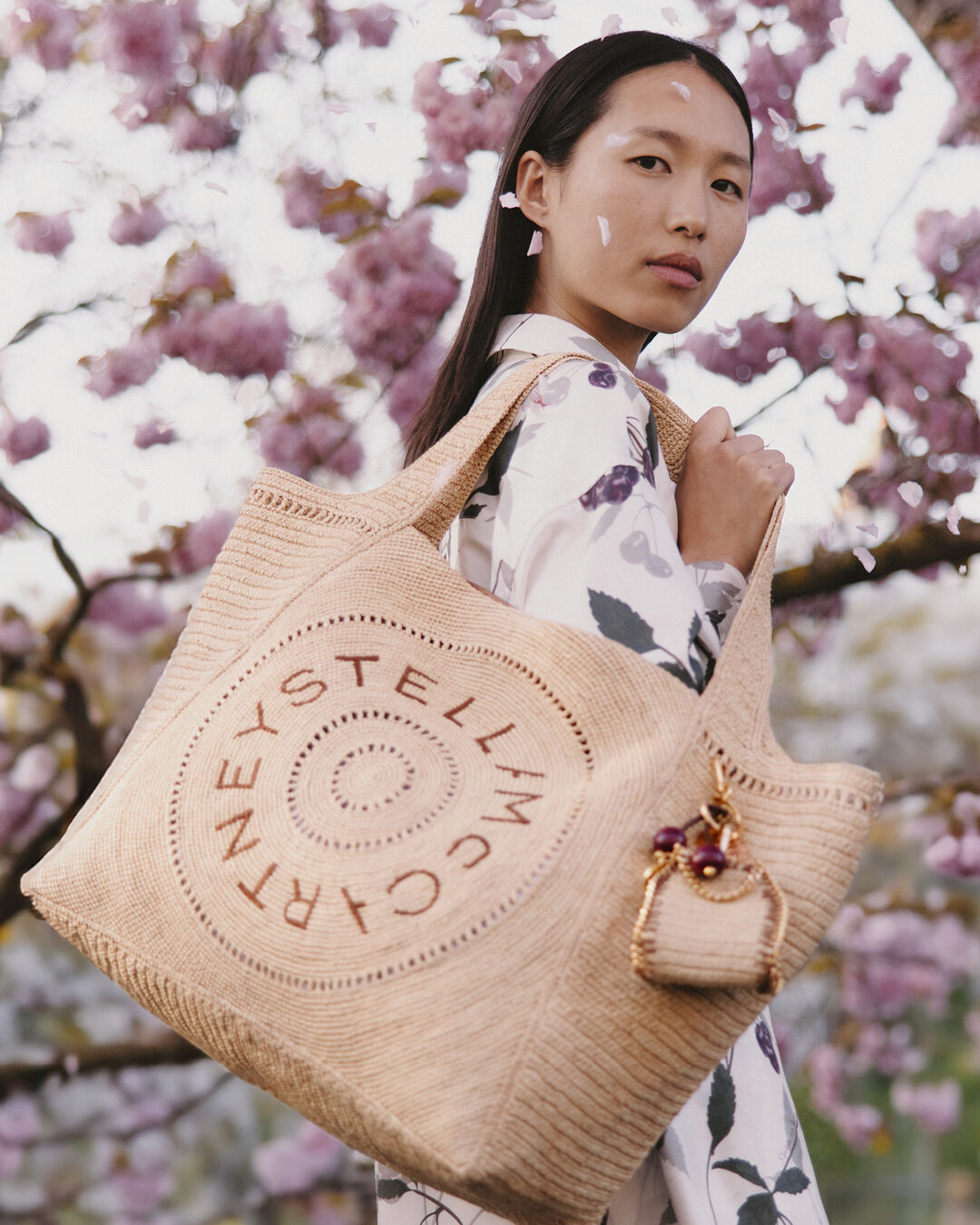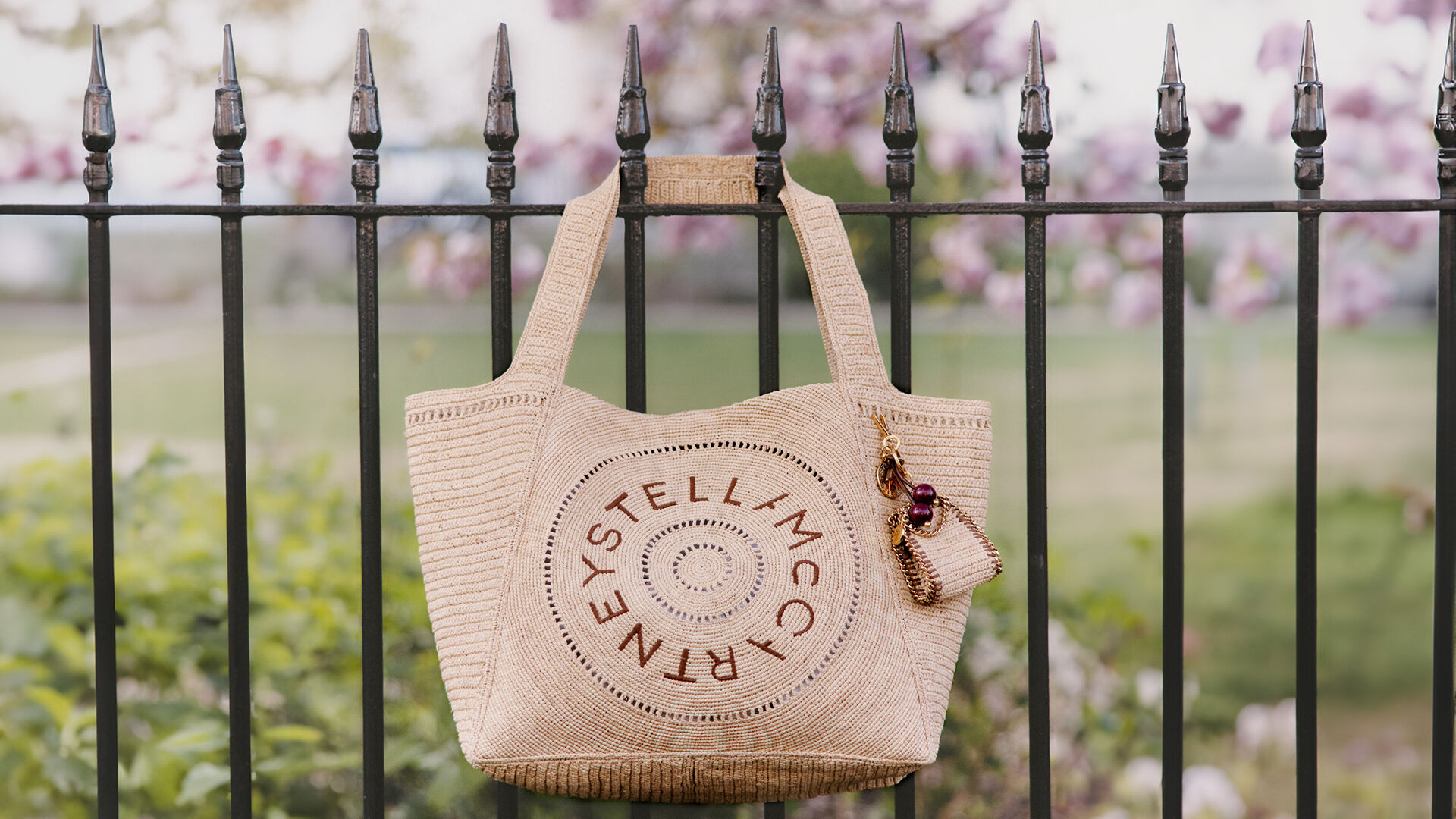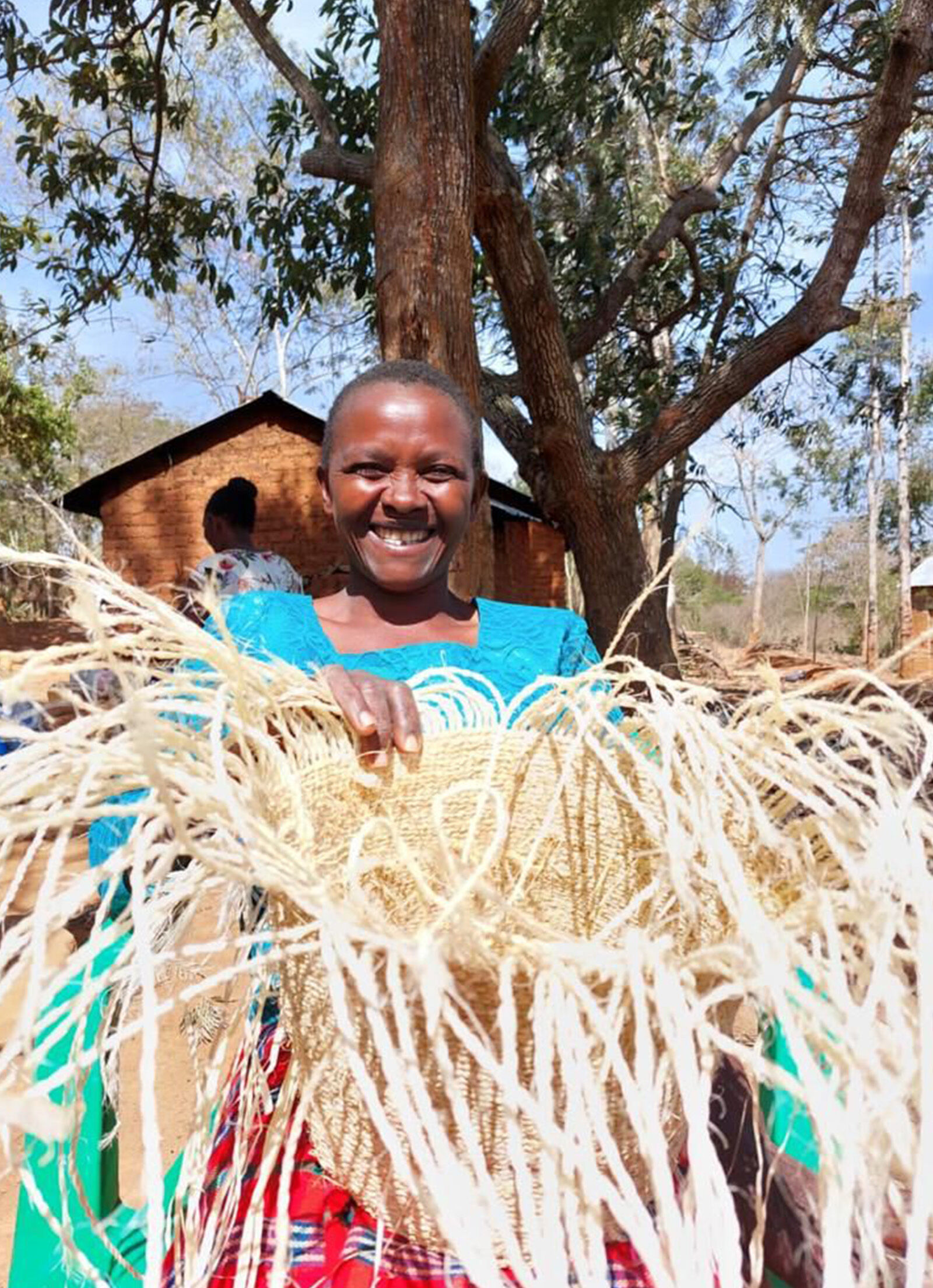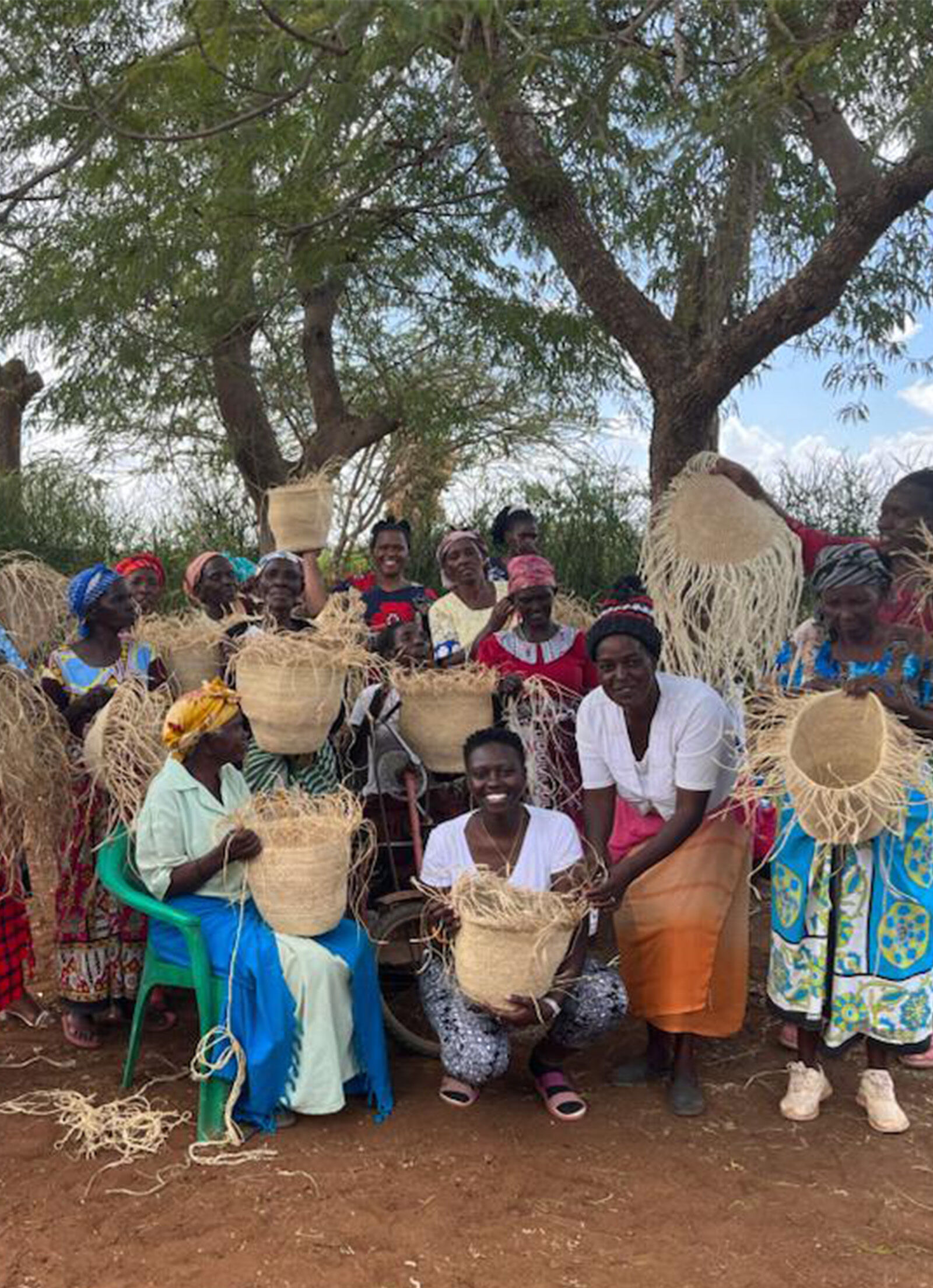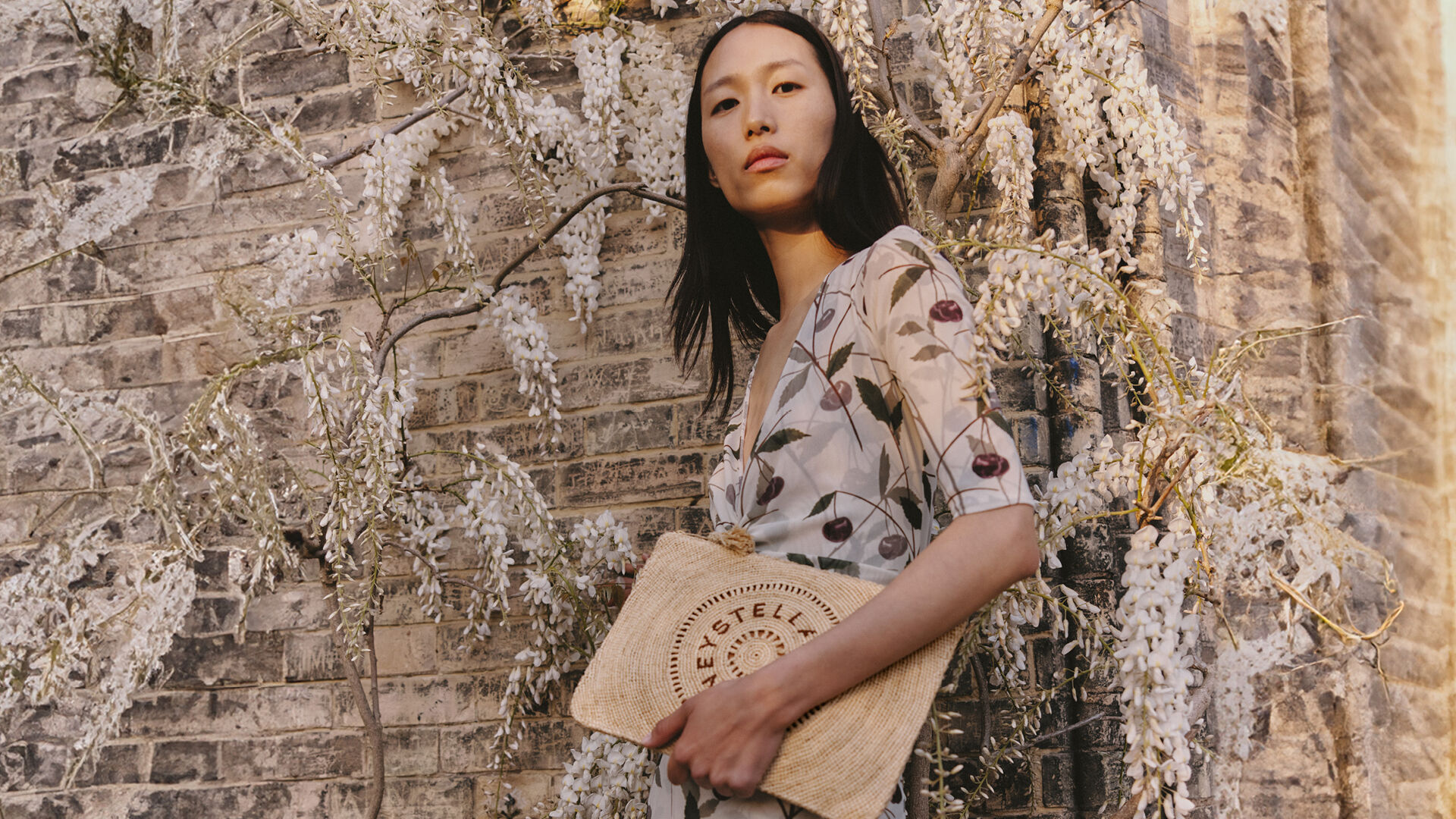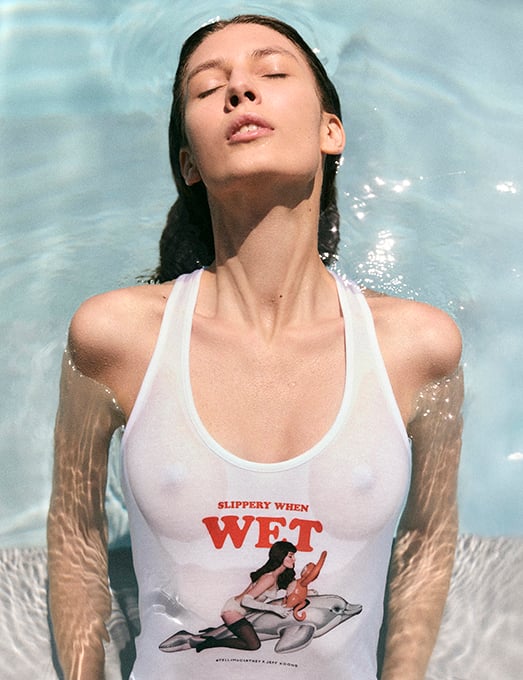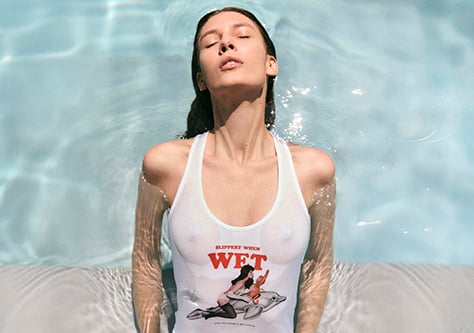Raffia: An ancient plant-based material, made contemporary
Raffia is one of the most sustainable materials in the fashion industry. Why? Because the cultivation of raffia involves only the careful hand-pruning (rather than cutting) of the raffia palm, it plays a huge part in sustainable agroforestry practices and benefits both the environment and local communities.
Raffia palms also play a crucial role in soil conservation and erosion control. Planted along riverbanks or in wet areas, the extensive root systems of raffia palms help bind the soil, preventing erosion and promoting stability in areas prone to water movement. These wet areas are often support diverse ecosystems. Planting raffia palms in these areas contributes to biodiversity by providing stable, enriched habitats for various plant and animal species.
Art Land x TANORA Raffia
Whatever goes into Stella McCartney’s products is obtained responsibly and with a conscience. We ensure our raffia is pruned at a minimum of 1.2 metres, so that harvesting is non-disruptive and that the health of the palm is preserved.
Our partners at Art Land Madagascar have been involved in designing and creating exclusive and sustainable products for more than 18 years. They see it as their duty to conduct themselves ethically and responsibly in all their work, always abiding by fair trade principles: workers being fairly paid, and no children are employed. As well as ensuring these practices are upheld within their own business, they also make sure the same measures are applied by their subcontractors.
Promoting sustainable and environmentally friendly practices is integral to preserving the unique habitat of Madagascar, and to provide durable economic opportunities to the surrounding local communities. Art Land supports local producers by providing them with equipment and training to ensure the quality of our products and professional stability of the artisans.
Abaca Raffia
Abaca fibres are extracted from the pseudo-stems of banana plants. The pseudo-stem is cut when bananas are harvested and would normally be left to decompose, producing carbon emissions. Zaida Solutions buys this agricultural waste from small-scale local farmers, extracting the fibres and drying them to produce this versatile, vegan material.
Iraca Palm
New for our 2025 high summer edit, these Iraca palm baskets are crafted by skilled artisans in provincial towns of Columbia. The fibres are harvested by farmers before being coloured, dried and braided by local craftswomen – a circular process that enables women to gain financial independence and emancipation, allowing their children to attend school and break the cycle.
For Summer 2024, Stella McCartney joined forces with the Ethical Fashion Initiative. Working with a community group of 50 female artisans from the Karnba Tribe of Kitui, Kenya, called Shalom Pride, we use locally purchased banana fibres from small-scale farmers to handcraft the bags pictured above. This project offers local women a new source of income and supports up to 250 beneficiaries across their community and families.
